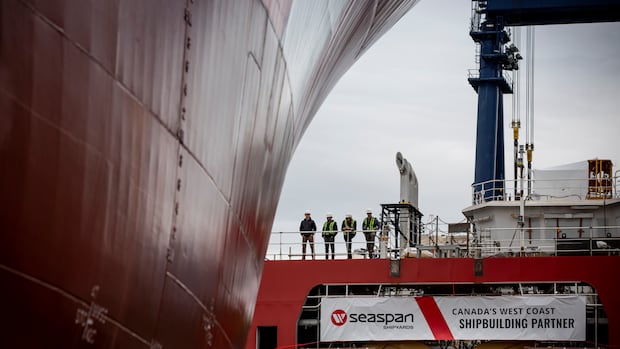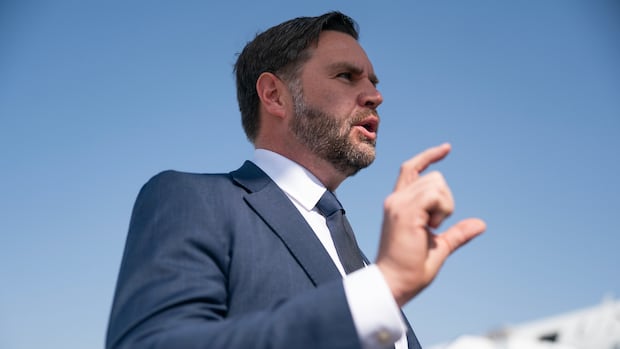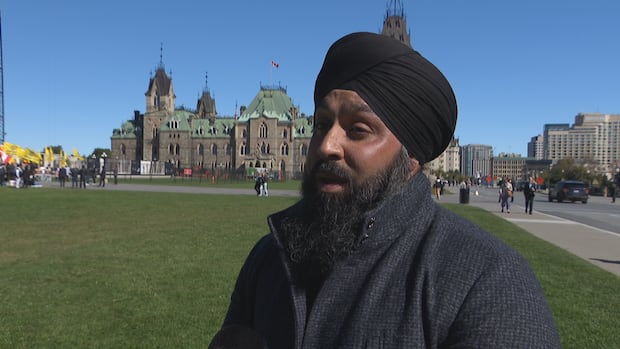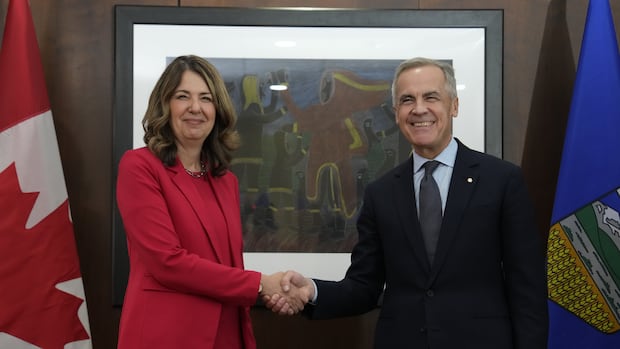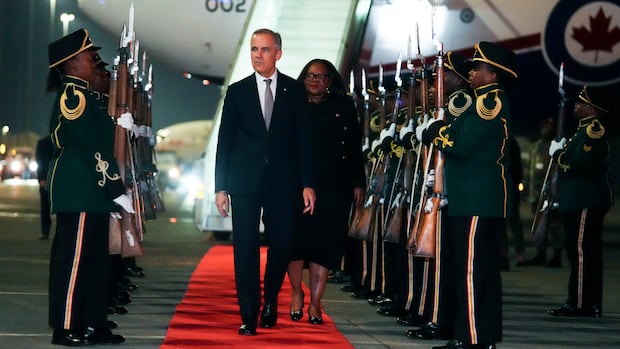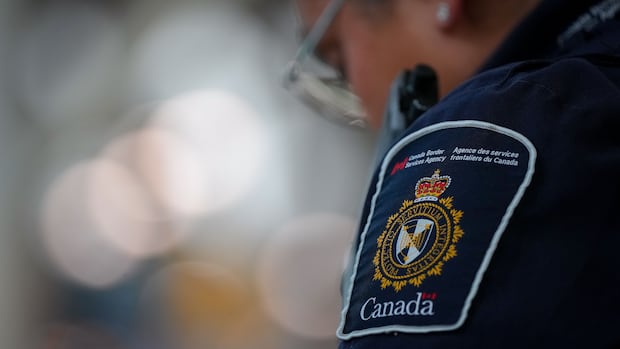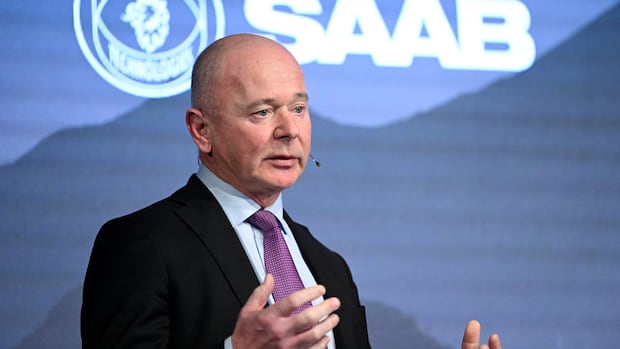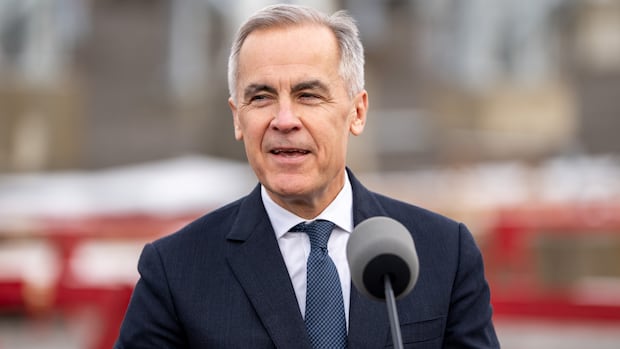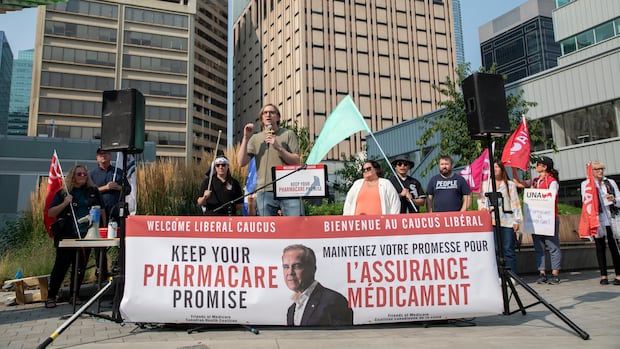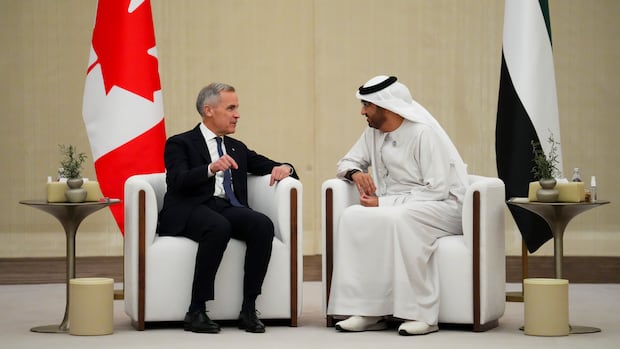Listen to this article
Estimated 5 minutes
The audio version of this article is generated by text-to-speech, a technology based on artificial intelligence.
Prime Minister Mark Carney’s visit to South Africa for the G20, which will include a meeting with the country’s president, comes as Canada prioritizes boosting trade with other continents and plans to scale back foreign aid.
A senior Canadian official said the Carney government’s first phase of diversifying trade away from the U.S. is heavily aimed at Europe and Asia.
The official added that the government’s commitment to Africa isn’t diminished, but “it’s not what the prime minister’s focus is on right now.”
The recent federal budget doesn’t mention Africa or allocate any new money for Canada’s long-awaited Africa strategy to boost engagement with the continent, which launched in March.
Edward Akuffo, a political science professor at the University of the Fraser Valley, said it’s the first time in Canada’s more than 70-year relationship with Africa that there’s a strategy like this for the continent, but he hasn’t heard Carney talk about it.
Carney could face questions at the G20 about why he isn’t promoting the strategy and where Africa fits into his foreign policy, he said.
“I think Mr. Carney seems to be missing the opportunity to actually take ownership and the implementation of this strategy from the previous Trudeau government,” said Akuffo, who writes about Canada's strategic approach to Africa.
“The government needs to step up to the plate.”
The senior Canadian official, who was not authorized to speak publicly, confirmed Ottawa is still pursuing Canada’s Africa strategy. The official said when the document was written there was a significant budget for international assistance in Africa which “largely remains.”
But the official said the government is now looking at how it can align funding with Carney’s priorities and African countries’ needs.
Canada has invested about $4.5 billion in assistance to Africa over the past five years to help build economies, respond to humanitarian needs and support education and health, according to Global Affairs Canada.
The Carney government’s budget, which narrowly passed a key confidence vote in the House of Commons on Monday, plans to cut foreign aid broadly by $2.7 billion over the next four years. The fiscal plan said those cuts would hit development funding to global health programming and transfers to international financial institutions, but didn’t detail what countries will be impacted and by how much.
But one of the first cuts was made public on Friday. Carney scaled back support for a major fund that helps fight infectious diseases including in Africa.
Before Carney arrived in South Africa for the summit, the government announced a $1-billion contribution to the Global Fund. That’s a 17 per cent drop from its last contribution in 2022.
This is the first cut to this funding since the fund launched more than 20 years ago. The fund helps fight AIDS, tuberculosis and malaria by distributing mosquito nets and treatment.
 Prime Minister Mark Carney smiles as he jokingly gestures to take a photo of assembled media as he arrives in Johannesburg, South Africa, on Friday. (Sean Kilpatrick/The Canadian Press)
Prime Minister Mark Carney smiles as he jokingly gestures to take a photo of assembled media as he arrives in Johannesburg, South Africa, on Friday. (Sean Kilpatrick/The Canadian Press)Akuffo said if Carney makes assurances the funding will be channeled into other investments in Africa, foreign aid cuts may not be a source of tension with South African President Cyril Ramaphosa when the two leaders meet in Johannesburg.
“The African mindset now is just trying to think broadly in terms of the needs of the continent beyond aid,” he said.
But Roland Paris, who was a senior adviser on foreign affairs to former prime minister Justin Trudeau, says Ramaphosa has brought in other African countries to try and align the G20’s agenda with their interests.
Paris said he doesn’t think foreign aid cuts will be well received, calling it “regrettable” Canada is cutting developmental assistance when crises around the world and humanitarian needs are growing.
“Many of our partners are also cutting their development budget, so in a way we’re kind of contributing to the problem,” said Paris, who is a professor of international affairs at the University of Ottawa.
He says Canada made commitments years ago to help African countries deal with the effects of climate change, and hasn’t fully delivered on those promises.
“Africa does have needs when it comes to debt financing and for climate financing,” Paris said. “And that means money from those of us who have already polluted the environment to help them adjust to changes that are taking place in climate.”
The Canadian official said Canada is working on building closer diplomatic and commercial relations with South Africa. The government is hoping to have a “substantial package” that comes out of Carney’s bilateral meeting with Ramaphosa on the sidelines of the summit, the official said.


